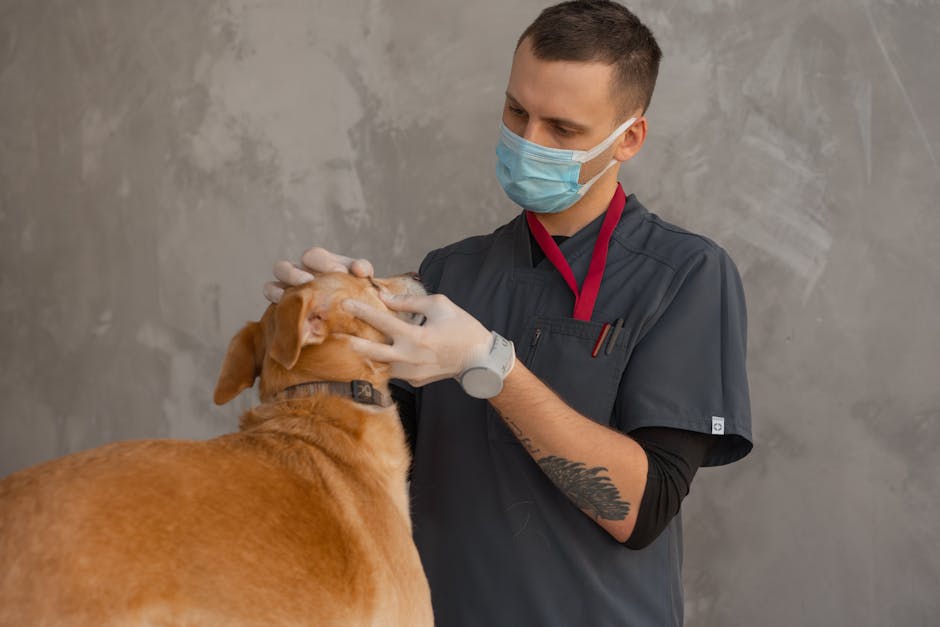Pets enrich our lives in countless ways, bringing joy, companionship, and unconditional love. To ensure their happiness and longevity, regular veterinary checkups are paramount. These routine visits aren’t just about catching illnesses; they’re about proactive health management, ensuring your furry, feathered, or scaled friend thrives.
A comprehensive veterinary examination extends far beyond simply identifying diseases. It’s a crucial component of preventative care, enabling early detection of potential issues and fostering a healthier, more fulfilling life for your pet. By understanding the myriad reasons behind the necessity of these appointments, you can make informed decisions that promote your pet’s well-being.
A Key to Proactive Health Management
A fundamental reason for prioritizing regular checkups is proactive health management. Just like humans, pets can develop health problems without exhibiting noticeable symptoms early on. Veterinary examinations are designed to identify subtle changes that might indicate developing conditions. These could include subtle changes in weight, appetite, energy levels, or coat condition. A diligent veterinarian can detect these markers well before they escalate into more serious issues, offering treatment and management strategies when intervention is most effective. Regular assessments also allow for the early detection of dental problems, eye issues, or joint degeneration, often enabling a significantly improved prognosis.
Proactive screenings for common ailments and breed-specific predispositions are central to this preventative approach. A thorough history taken during the appointment, including details about your pet’s diet, lifestyle, and breed, allows the veterinarian to assess potential risks and perform targeted screenings. For instance, breeds prone to hip dysplasia can be monitored more closely, and early interventions can significantly improve their quality of life.
Vaccination and Parasite Prevention: A Shield Against Disease
Beyond basic health assessments, regular veterinary checkups are crucial for administering essential vaccinations and parasite prevention programs. Vaccination schedules tailored to your pet’s age and lifestyle protect them from potentially fatal diseases. These inoculations build immunity against illnesses that could otherwise severely impact their health. Similarly, regular parasite control, including flea and tick treatments, heartworm prevention, and deworming, is essential to maintain a healthy ecosystem for your pet. This crucial aspect of preventive care safeguards against potentially debilitating infestations and diseases transmitted through parasites.
Nutritional Counseling and Lifestyle Adjustments
Veterinarians often act as trusted advisors in the realm of pet nutrition and lifestyle. During checkups, your veterinarian can provide personalized advice on dietary needs based on your pet’s age, breed, activity level, and any existing health conditions. Nutritional deficiencies, imbalances, or allergies can often be detected and corrected early, preventing health issues down the line. Moreover, your veterinarian can offer guidance on managing your pet’s weight, fostering exercise routines, and ensuring adequate rest. A healthy lifestyle, supported by expert advice, can significantly extend your pet’s lifespan and overall quality of life.
Monitoring Growth and Development: Crucial for Young Animals
For young animals, regular checkups are critical for monitoring their growth and development. Veterinarians can assess their physical progress, ensure they’re hitting developmental milestones, and identify potential issues early. This is particularly important for puppies and kittens, as deviations from typical growth patterns can signal underlying health problems. Monitoring growth and development allows for timely intervention, preventing conditions that may hinder their future well-being. Young animals are often more resilient to certain treatments, and early intervention can make a substantial difference.
Addressing Behavioural Concerns
Often overlooked, veterinary checkups can also play a role in addressing behavioral concerns. A change in your pet’s behaviour could signify underlying medical conditions. A veterinarian can determine if the behavior change stems from pain, anxiety, or another medical issue. This proactive approach ensures a comprehensive assessment of your pet’s well-being, going beyond physical health to encompass their emotional and behavioral state.
The Importance of a Strong Veterinary Relationship
Ultimately, regular veterinary visits aren’t simply about treatments; they establish a strong, trusting relationship between you and your veterinarian. This partnership fosters open communication, enabling you to discuss any concerns and receive professional guidance. The veterinarian becomes a trusted advisor, offering personalized recommendations and tailored care plans to ensure your pet’s long-term health and well-being. This rapport is invaluable in navigating complex health situations, offering support and guidance throughout your pet’s life.
In conclusion, routine checkups aren’t just a chore for you or a necessary task for your pet; they are a cornerstone of proactive, compassionate pet care. They empower you to take an active role in preserving your animal companions’ well-being, identifying and addressing issues early on, and ensuring they can fully embrace their lives with you. This commitment to preventative care is a testament to the deep bond shared between pet owners and their cherished animal companions.
